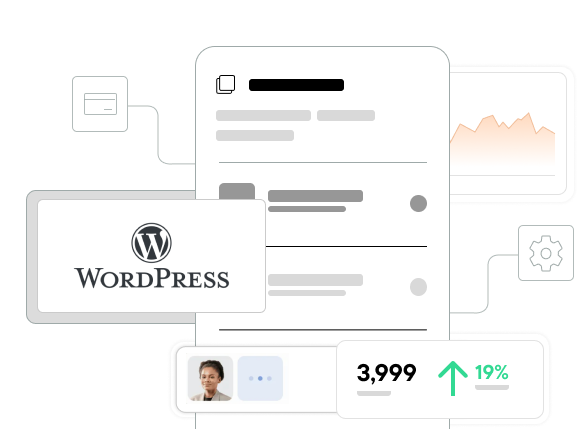When it comes to SEO, WordPress offers a solid foundation—but to stand out in today’s competitive search landscape, you need more than just keywords and backlinks. Enter structured data and schema markup—powerful tools that help search engines understand your content and improve your visibility in search results.
From rich snippets to enhanced product listings, adding structured data to your WordPress site can significantly boost your site’s presence in Google and beyond. Whether you’re a developer or a site owner, understanding how to implement schema markup correctly is key to unlocking these benefits.
What Is Structured Data?
Structured data is a standardized format used to provide additional context to your content. It helps search engines like Google interpret the page elements more precisely—for example, identifying a piece of text as a product name, review, or event date.
What Is Schema Markup?
Schema markup is a vocabulary of tags (or types) created by Schema.org and supported by major search engines. It’s the language used to apply structured data to your website, allowing search engines to create “rich results” like:
- Star ratings in product reviews
- Event dates and times
- FAQ dropdowns
- Recipe details
Why Is This Important for WordPress SEO?
WordPress sites that use schema markup correctly can enjoy higher click-through rates, better engagement, and even voice search compatibility. In a crowded search results page, rich snippets help your content stand out.
Common Schema Types for WordPress
Depending on your site type, different schemas may be applicable:
- Article/BlogPosting: For blog posts and news articles
- Product: For WooCommerce or custom eCommerce setups
- FAQPage: For pages with structured Q&A content
- LocalBusiness: For service-based businesses
- BreadcrumbList: To show your site’s hierarchy in search results
JSON-LD vs. Microdata
Google recommends JSON-LD (JavaScript Object Notation for Linked Data) for structured data. It’s cleaner, easier to manage, and doesn’t clutter your HTML.
Example Difference:
Microdata (embedded in HTML):
<div itemscope itemtype="https://schema.org/Article">
<h1 itemprop="headline">My Article</h1>
<p itemprop="author">By Jane</p>
</div>JSON-LD (recommended):
<script type="application/ld+json">
{
"@context": "https://schema.org",
"@type": "Article",
"headline": "My Article",
"author": {
"@type": "Person",
"name": "Jane"
}
}
</script>Validation Tools
Use these tools to test your implementation:
Adding Schema with wp_head
To inject schema markup into your theme’s header:
function add_custom_schema_markup() {
if (is_single()) {
?>
<script type="application/ld+json">
{
"@context": "https://schema.org",
"@type": "BlogPosting",
"headline": "<?php the_title(); ?>",
"author": {
"@type": "Person",
"name": "<?php the_author(); ?>"
},
"datePublished": "<?php the_time('c'); ?>"
}
</script>
<?php
}
}
add_action('wp_head', 'add_custom_schema_markup');Dynamic Schema for Products (Simplified WooCommerce Example)
add_action('wp_head', 'custom_product_schema');
function custom_product_schema() {
if (is_product()) {
global $product;
?>
<script type="application/ld+json">
{
"@context": "https://schema.org/",
"@type": "Product",
"name": "<?php echo get_the_title(); ?>",
"offers": {
"@type": "Offer",
"price": "<?php echo $product->get_price(); ?>",
"priceCurrency": "USD",
"availability": "https://schema.org/<?php echo $product->is_in_stock() ? 'InStock' : 'OutOfStock'; ?>"
}
}
</script>
<?php
}Best Practices
1. Use JSON-LD Format
It’s easier to debug, preferred by Google, and keeps your HTML clean.
2. Avoid Conflicting Markup
Don’t use both plugin-generated and custom schema on the same content. This can lead to duplication or conflicting data.
3. Validate Regularly
Use Google’s Rich Results Test to ensure your markup is correctly implemented and eligible for enhancements.
4. Use Plugins (Carefully)
While plugins can simplify schema integration, not all of them are lightweight or flexible. If you choose to use one, test performance and markup output carefully.
5. Use Theme and Plugin Hooks
Inject schema markup via theme functions.php or a custom plugin to keep your logic modular and maintainable.
Conclusion
Structured data and schema markup are powerful tools that can elevate your WordPress site’s SEO to the next level. From richer search listings to better user engagement, the benefits are too significant to ignore.
But managing schema manually across environments—especially for dynamic content—can be a hassle.
How Sitebox Helps
Sitebox streamlines schema implementation and testing by providing:
- Isolated environments for safe markup experimentation
- Instant preview URLs to test Rich Results across environments
- Git-based deployment to version and roll back schema changes
Whether you’re optimizing a content site or a full-blown SaaS product built on WordPress, Sitebox gives your development team the clarity and confidence to push SEO-enhancing changes without fear.
Need help implementing schema on your WordPress site?
Start with clean code, validate often, and let Sitebox handle the rest.




